Our data is redefining the health insurance industry
Smartphones and wearables are blurring the line between healthcare and self-monitoring
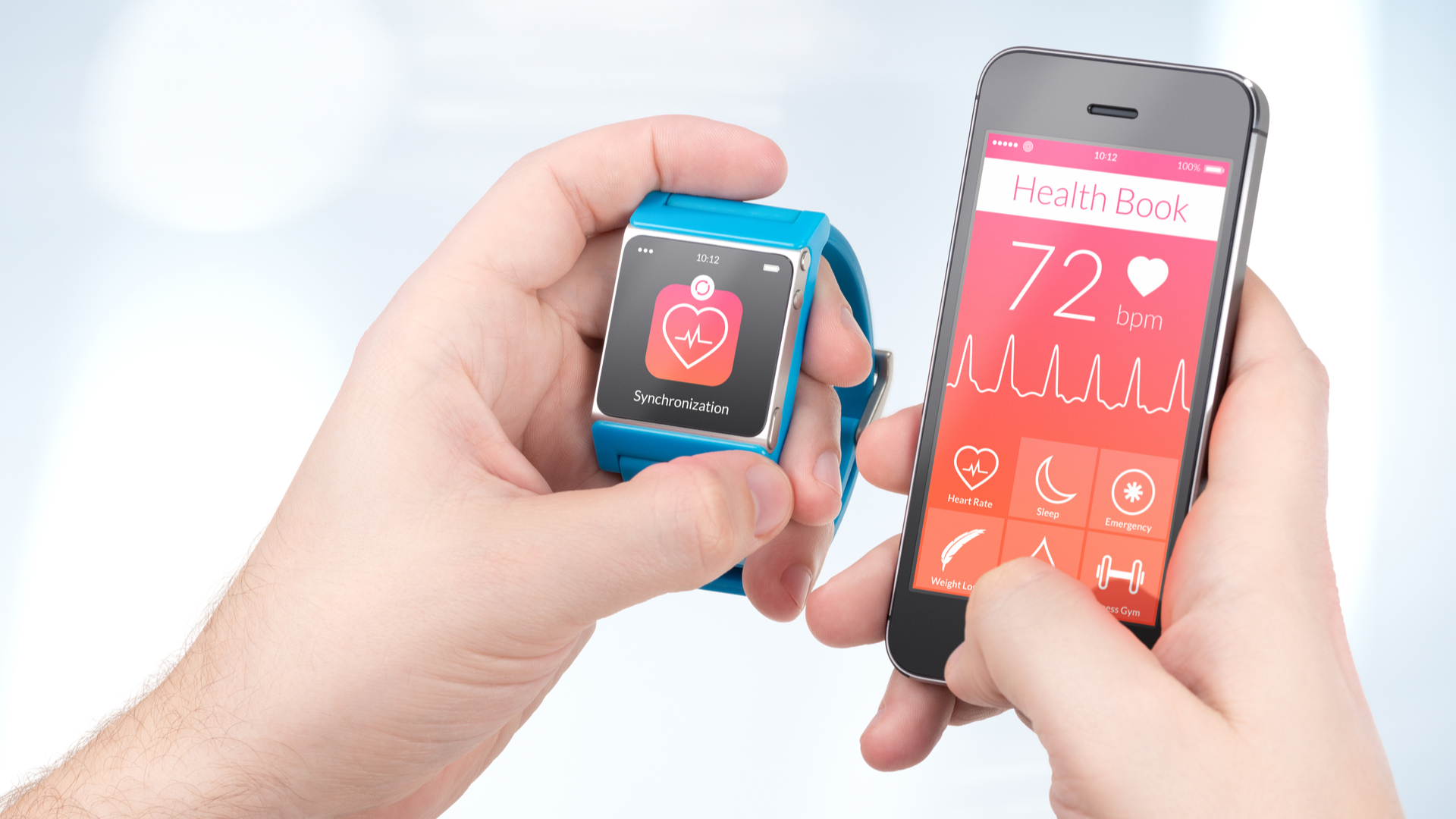

Healthcare has always relied on data. Even in the days of using leeches and believing in the four humours, data was used to diagnose and treat people. Today, we are still learning about the human body and how to treat and manage it, and data is central to both practice and progress.
But health data now has relevance outside the healthcare provision sectors as well as within them. Analyst Juniper has said that healthcare spend in wearables is set to reach $60bn by 2023. Moreover, OEMs are expected to adjust their business models, for example by selling data to insurance providers. Juniper forecasts that service revenues of this nature will reach $855 million by 2023.
Even health data is now a commodity
There is a big difference between consumer grade wearables and those created for medical purposes. As Bryan Betts, principal analyst at Freeform Dynamics told us, consumer-grade wearables "are designed and built to a price, using consumer-grade technology. That's fine for tracking your run, your average heart rate and so on, but not as a replacement for a medical sensor".
Yet these consumer-grade devices do produce data, and the line between self-monitoring and healthcare is becoming blurred. The latest Apple Watch can detect an irregular heartbeat, corporate wellness programmes are starting to include the rollout of devices, and some insurers positively encourage the use of wearables through rewards and premium discounts.
When it comes to insurance companies encouraging the use of wearables through incentives, Ben Moody, head of health and social care at techUK told us that it's "unlikely that the insurance industry will implement this kind of scheme in order to reduce its income".
"Discounted premiums for some inevitably mean more expensive deals for others," says Moody. "The whole point of insurance is about pooling risk, and no one wants to see a world where people with medical conditions become uninsurable for holidays, life insurance and so on."
Jonathan Warren, a consultant at Altus Consulting, explains insurances companies are right to view data as a new commodity, and many are beginning to create an 'insurance as a service' eco-system.
Get the ITPro daily newsletter
Sign up today and you will receive a free copy of our Future Focus 2025 report - the leading guidance on AI, cybersecurity and other IT challenges as per 700+ senior executives
"If you exercise regularly, can I push adverts at you from health food providers, gyms, manufacturers of sportswear or products? If I discount your premium, can we have your location data through your wearable? And again use that to build a profile of your habits, e.g. I know you shop at Waitrose every Friday evening."
What does the data mean?
Analysing and imputing meaning to health data is not easy. AI and analytical tools are prolific - Marcus Vass, Co-Head Digital Health Group at Osborne Clarke explains that it's no longer just insurers that have access to medical data.
"The big technology companies - Alibaba, Amazon, Google, Microsoft, Xiaomi - all have game-changing data analytical tools and AI. And this is in addition to the existing health data collected by traditional health services, pharmaceutical and medtech companies."
However, a question remains as to how meaningful all this data really is, particularly as judging what is considered healthy behaviour is an incredibly complex exercise.
"Driving a car slowly, not very far, during the day and on smooth roads would universally be considered good, low-risk behaviour, regardless of any other characteristics of the individual," explains Vass. "Whereas, what is 'healthy' and how to maintain health is much more complex: running is generally good, but not necessarily where the runner suffers co-morbidities such as arthritis, bone density issues or heart conditions. Additionally, what is and is not considered healthy behaviour is constantly changing and open to question. Postwar, a diet high in red meat and dairy was the ideal - these days, not so much."
There's also the issue of the reliability of this data, as without a controlled setting it's impossible to ascertain how accurate readings are. As Ben Moody from techUK puts it, "who would know if I attached my Fitbit to my friend's pet dog? Or if my bicycle had an electronic motor?"
Then there is the question of data compatibility across different devices. "There is evidence to suggest that some tracking systems are more accurate than others," says Vass. This poses a significant problem for companies like insurers, as in order to make accurate judgements on the raw data, they will need to dictate what devices are suitable, making it less convenient for the data subject. This would also restrict the ability of companies to pool data together from various sources, as there's no way of assessing what is accurate and what isn't.
Security, consent, and the future of insurance
There are key questions to be asked around data security and consent too. As Vass notes, "Once the data exists, there will always be a security risk. Generally, the more sharing that goes on between entities (such as sharing between the device company and the insurer) and the more data there is to share, the greater the opportunity for exposure."
Still, it seems likely that insurance companies and others will be increasingly interested in health monitoring data. After all, the insurance industry will make use of any information it can to reduce the risk involved in a policy decision.
"Medium term, it's predicted that wearables will be capable of monitoring our health much more closely - our heart function and markers for other serious illness, as well the potential for genetic profiling to predict our susceptibility to life-threatening conditions," explains Warren. "The interesting question then becomes whether people showing high risk can get, or afford, insurance."

Sandra Vogel is a freelance journalist with decades of experience in long-form and explainer content, research papers, case studies, white papers, blogs, books, and hardware reviews. She has contributed to ZDNet, national newspapers and many of the best known technology web sites.
At ITPro, Sandra has contributed articles on artificial intelligence (AI), measures that can be taken to cope with inflation, the telecoms industry, risk management, and C-suite strategies. In the past, Sandra also contributed handset reviews for ITPro and has written for the brand for more than 13 years in total.
-
 Bigger salaries, more burnout: Is the CISO role in crisis?
Bigger salaries, more burnout: Is the CISO role in crisis?In-depth CISOs are more stressed than ever before – but why is this and what can be done?
By Kate O'Flaherty Published
-
 Cheap cyber crime kits can be bought on the dark web for less than $25
Cheap cyber crime kits can be bought on the dark web for less than $25News Research from NordVPN shows phishing kits are now widely available on the dark web and via messaging apps like Telegram, and are often selling for less than $25.
By Emma Woollacott Published
-
 AI inferencing with AMD EPYC™ processors
AI inferencing with AMD EPYC™ processorswhitepaper Providing an excellent platform for CPU-based AI inferencing
By ITPro Published
-
 Green Quadrant: Enterprise carbon management software 2022
Green Quadrant: Enterprise carbon management software 2022Whitepaper Detailing the 15 most prominent carbon management software vendors to see if they fit your requirements
By ITPro Published
-
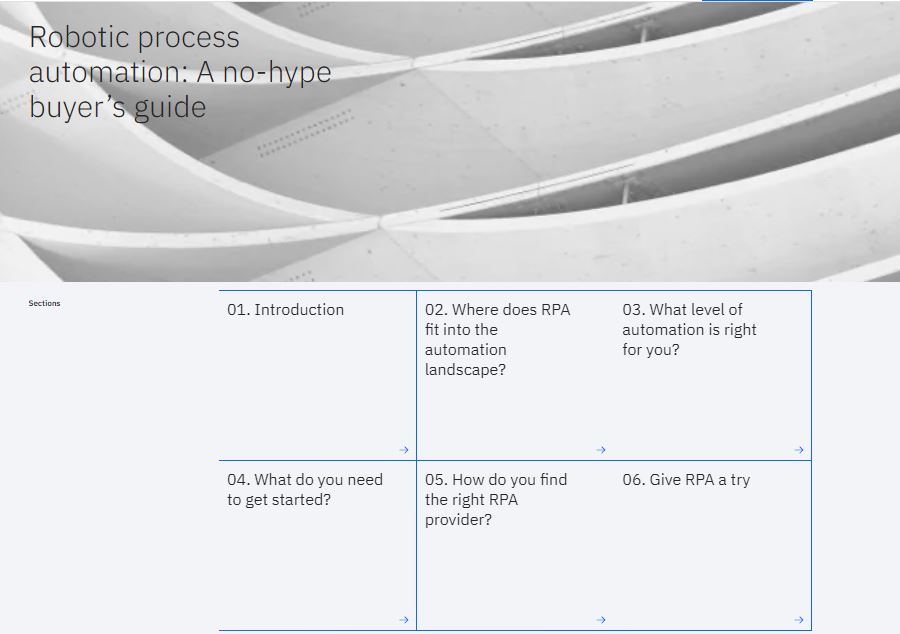 Robotic process automation
Robotic process automationWhitepaper A no-hype buyer's guide
By ITPro Published
-
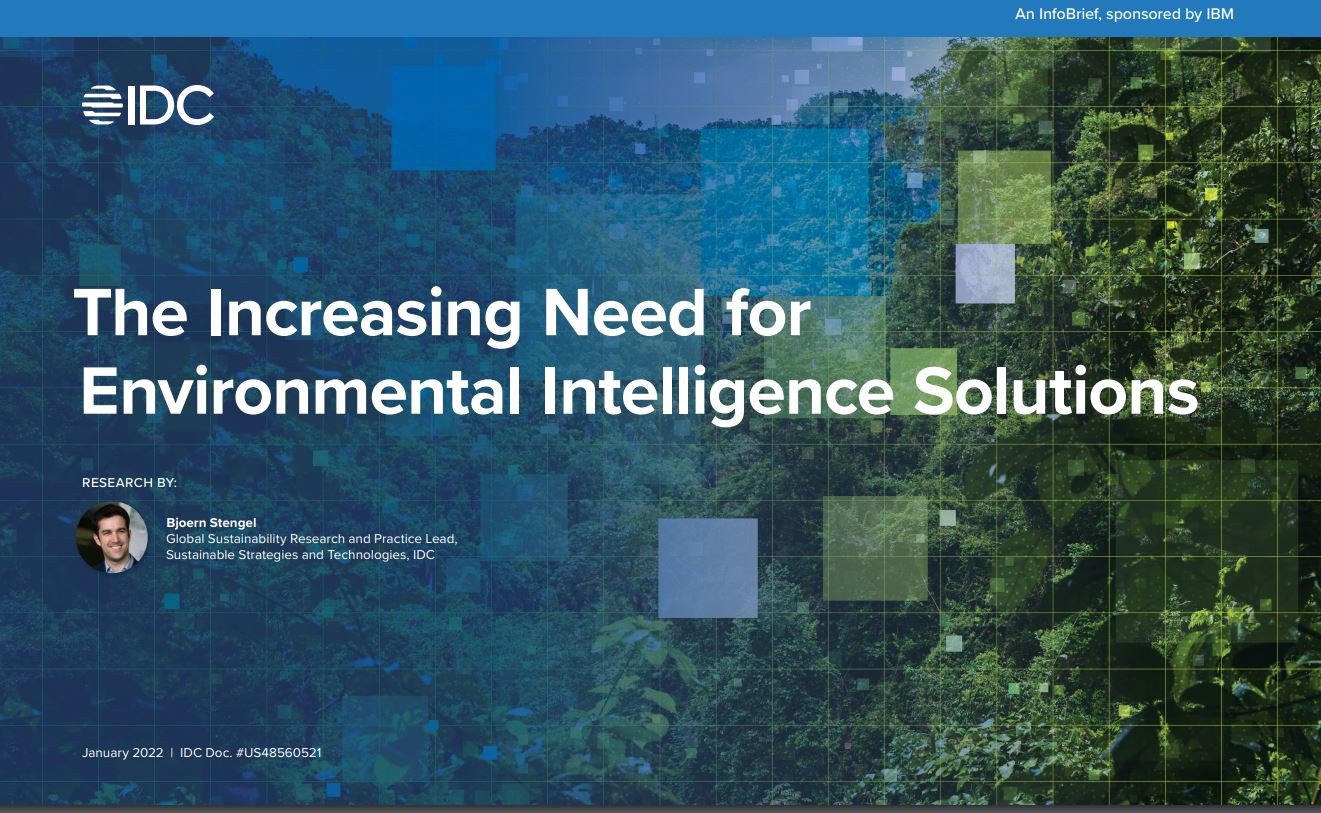 The increasing need for environmental intelligence solutions
The increasing need for environmental intelligence solutionsWhitepaper How sustainability has become a major business priority and is continuing to grow in importance
By ITPro Published
-
 Why developers are turning to ultra-powerful workstations for more creative freedom at less cost
Why developers are turning to ultra-powerful workstations for more creative freedom at less costWhitepaper The market for AI applications is immense and their economic value even greater
By ITPro Published
-
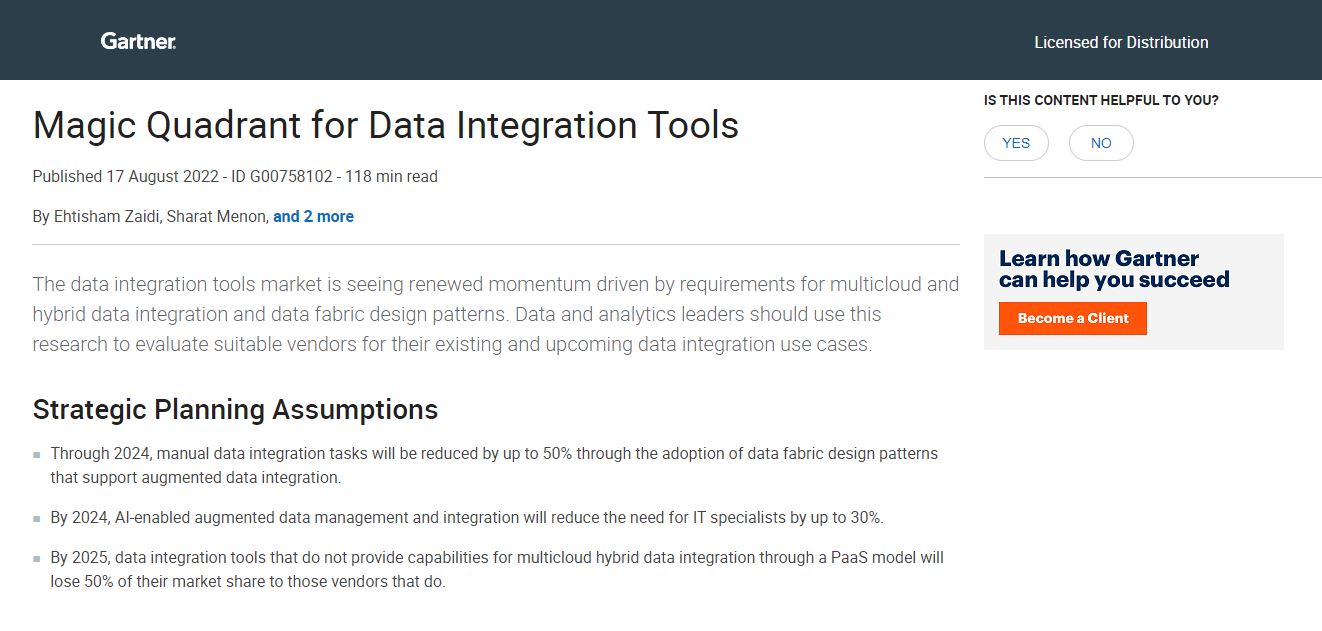 2022 Magic Quadrant for data integration tools
2022 Magic Quadrant for data integration toolsWhitepaper Using research to evaluate suitable vendors for their existing and upcoming data integration use cases
By ITPro Published
-
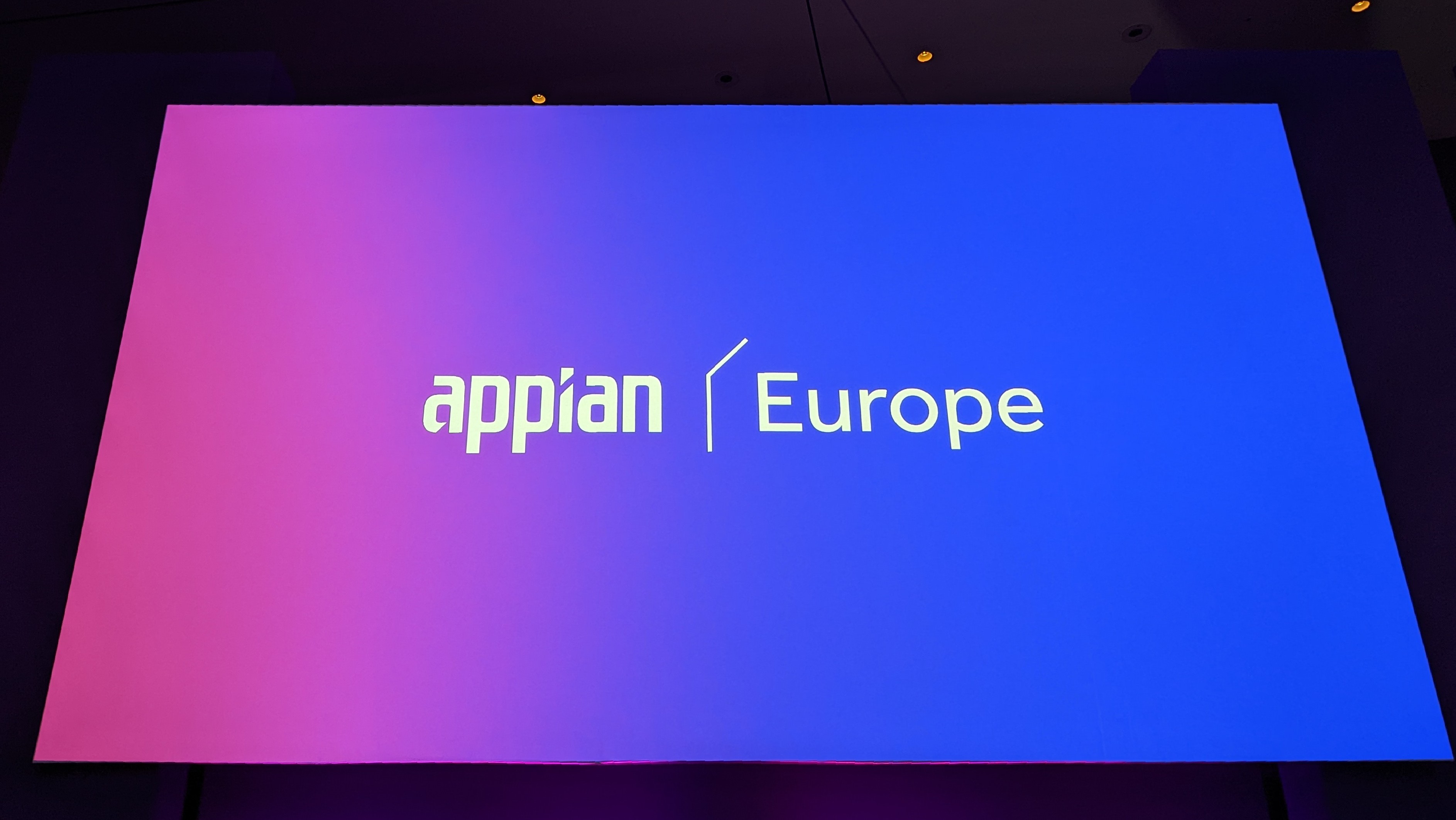 Appian Europe: 'Our data fabric system offers features unavailable anywhere else'
Appian Europe: 'Our data fabric system offers features unavailable anywhere else'News The cloud firm says its updated system gives customers more control over their data than ever before, while retaining its low-code pedigree
By Rory Bathgate Published
-
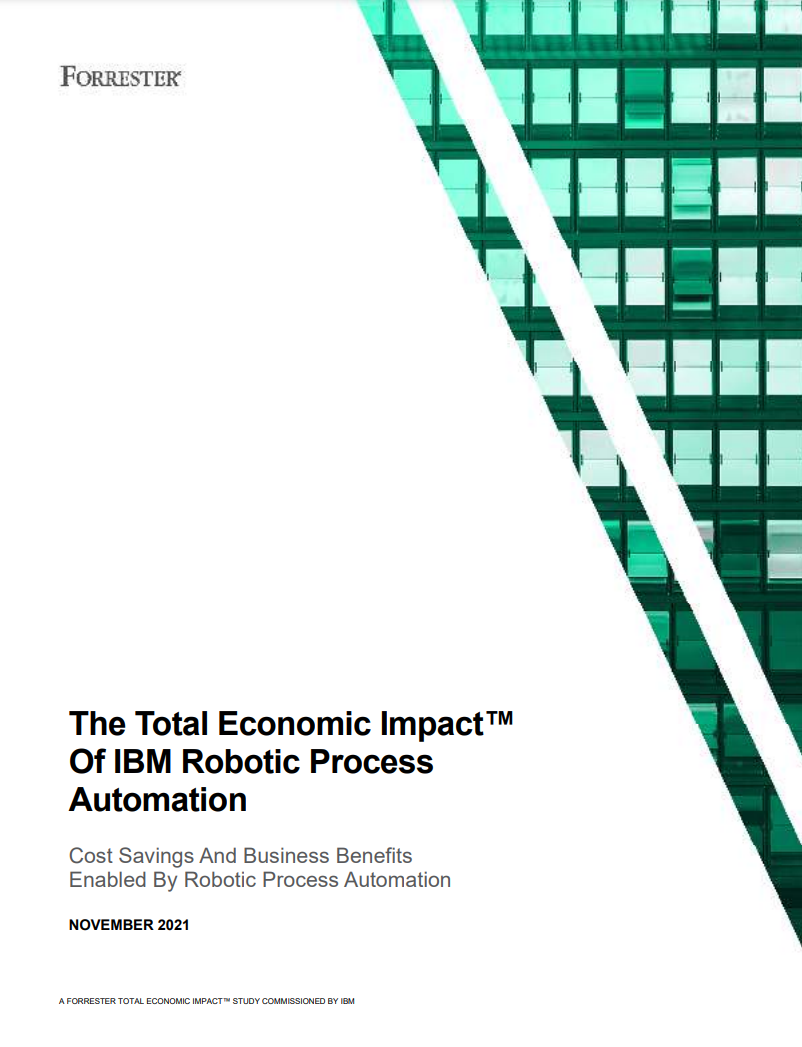 The Total Economic Impact™ of IBM robotic process automation
The Total Economic Impact™ of IBM robotic process automationWhitepaper Cost savings and business benefits enabled by robotic process automation
By ITPro Published